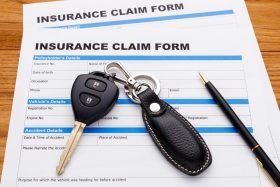How Does Insurance Work When Borrowing a Car?

Sometimes, borrowing a car from a friend or family member might be the simplest solution to a problem. For example, maybe someone needs to run an errand while their own car is in the shop for the day and a friend offers them use of a car that’s not being used anyway. Renting a car just to run that errand might seem rather excessive and even getting an Uber might seem like more trouble (and more expensive) than it’s worth. Or maybe someone needs to move a large piece of furniture and might borrow a friend’s pickup truck to do so. But while borrowing a car might seem like the easiest way to solve a problem sometimes, what happens if a car accident occurs while a person is driving a borrowed car?
In the state of Michigan, car owners are required to carry no-fault auto insurance policies. This means that, in most cases, the people involved in a car accident go through their own insurance to cover their property damage and medical bills. So if a person is driving a borrowed car at the time of the accident, whose insurance would apply – the car owner’s insurance or the driver’s insurance?
The simple answer to this is that the insurance follows the vehicle, not the driver. So if a person is driving a borrowed vehicle and gets into a car accident, claims would be made against the car owner’s insurance. However, since there are now varying levels of Michigan auto insurance coverage, that can make things more complex. If both the car’s owner and the person have no-fault insurance policies, the driver’s insurance policy may kick in to cover damages that exceed the limits of the driver’s policy. But if the driver doesn’t have their own no-fault insurance policy and has damages that exceed the car owner’s policy limits, liability may fall on the owner of the car.
There are also other ways where car accidents involving borrowed cars can get complicated in terms of insurance and liability. For example, there’s the concept of “constructive ownership” which might come into play. Constructive ownership comes into play when a person has regular access to a car even though their name is not on the title. This might apply if a person uses a borrowed car often enough to have their own set of keys or if they use the car often enough that it mostly stays at the borrower’s home for more than 30 days. In a situation where constructive ownership is involved, the constructive owner would need to have their own no-fault insurance policy or they could be disqualified from receiving no-fault benefits in an accident.
Of course, it’s also important that the person who owns the car knows that the car is being driven and gives permission. If a person takes a car without permission and is injured in a car crash while driving the stolen car, they would not be entitled to Michigan no-fault benefits. Someone could also be denied no-fault benefits if they are listed as an excluded driver on an insurance policy.
Contact a Michigan Car Accident Lawyer
If you are injured in a car accident while driving a borrowed vehicle or you’re the owner of a car that was involved in a car accident, don’t hesitate to contact a car accident lawyer as soon as possible. These aren’t always cut-and-dry cases, so it’s important to speak to someone who knows the law, can help you understand what your rights are, and can help make sure your case is handled appropriately. At Goodwin & Scieszka, you’ll be able to talk to a lawyer highly experienced in handling Michigan car accident cases and is ready to help you. Contact us today to get started.






